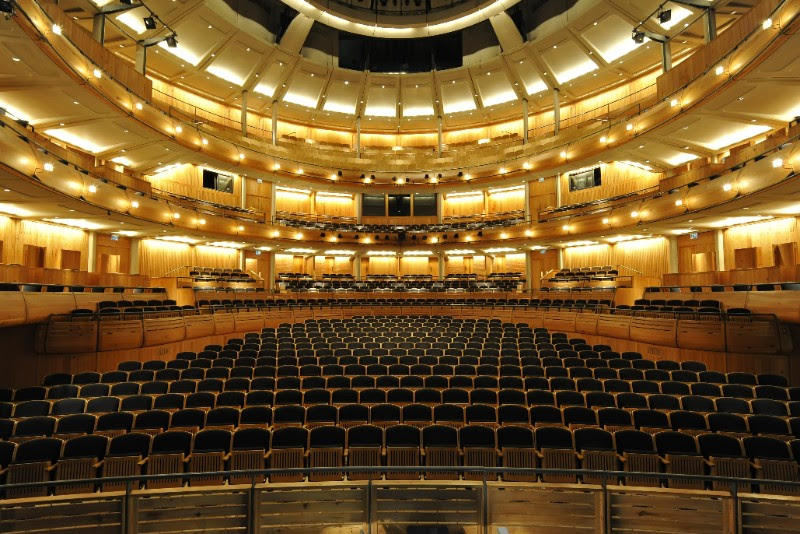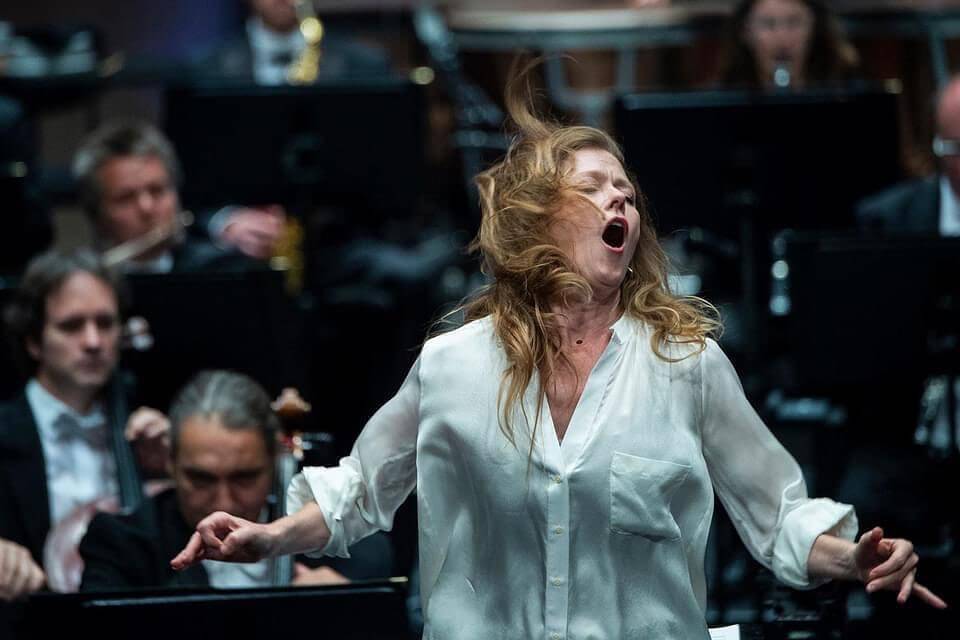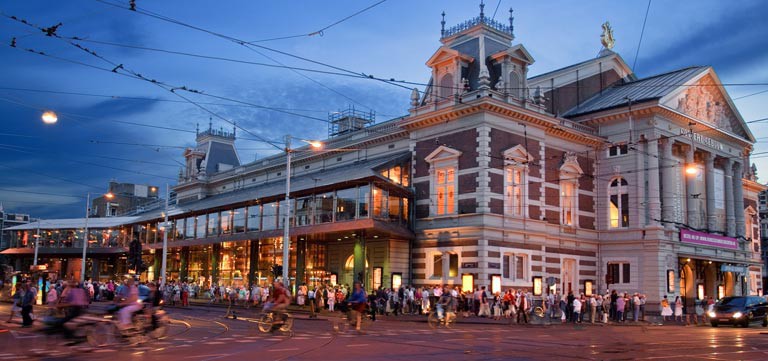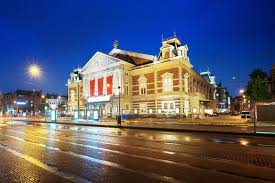Good news: Handel sells
OperaGlyndebourne has added an extra performance of Giulio Cesare in August because its punters simply cannot get enough of the old brute. All scheduled shows are totally sold out.
This is hugely encouraging for the countryhouse opera sector, which has been slightly depressed by knock-ons from the collapse of English National Opera and by the shrinkage of Nevill Holt.
Giulio Cesare stars Aryeh Nussbaum Cohen and Louise Alder; Laurence Cummings conducts a David McVicar production.






Tell that to Gelb
Yes! Hope the Met brings back Handel soon. I was particularly looking forward to Ariodante with Christophe Dumaux.
Bring back Janet Baker and Valerie Masterson with Julius Caesar and ENO. Wishful thinking but I will never forget it.
The performing edition and ornamentation provoked a lively debate at the time led by a distinguished critic ,Winton Dean, I remember, but as a performance both the music ( conductor Mackerras) and production ( Copley) sprang to life. The cast was just great including Della Jones , Sarah Walker , John Tomlinson and when I saw it John Angelo Messana ( replacing James Bowman) in addition to wonderful performances from Janet Baker and Valerie Masterson. Imagine a National company being able to assemble such a cast . I always felt the film , made some time after the stage performances , was a nice souvenir , but doesn’t quite reflect the excitement the show generated at the Colisseum.
Good to hear an extra performance is being added due to public demand at Glyndebourne.
The “country house opera sector” is conception relatively unique to the Anglosphere. In countries like Germany, Italy, and others, opera is approached as an art form for a wide public, while in the USA and to a lesser degree in the UK, it is approached as an elitist form for the better off who can afford expensive tickets, travel, and lodgings. Santa Fe, Glimmerglass, Central City, and Chautauqua Opera are examples in the USA.
At Santa Fe, it’s $350 for a good seat, $700 for a couple, expensive Santa Fe hotels, an airline flight, and a rental car, and restaurant costs. Some of these summer houses might be a little less costly, but as with most upper level classical music institutions in the USA, most function something like cultural country clubs for the wealthy and are plutocratic in their social views.
Europeans do have summer opera festivals, but they aren’t such a central part of their opera world, and attending is not as expensive. Average people can have relatively good seats and afford the other costs of attending. The difference is public arts funding, something not possible in the USA with its increasingly dysfunctional and anachronistic 18th century form of government. Sadly, the UK, which in an act of masochistic insanity separated itself from Europe, is increasingly shaped by US perspectives. These plutocratic views, however, will benefit the “country opera house sector.”
I was just in Santa Fe this past August for a week of 4 operas. $15 standing room, $100/night motel, gas $300, pizzas and mexican food…Total cost less than $1000.
The big European festivals cost more- Pesaro, Salzburg, Bayreuth etc. all super expensivo.
Yes, if you’re content with standing room at the back of that cavernous Santa Fe house and Motel 6, just a mere $1000. (Decent midrange hotels in SF are quite expensive.) Where I lived in Germany, there are 9 full time opera houses within a 2 hours drive. Little gas a and no hotel needed. The tickets average about one third the cost of the Santa Fe Opera and they all have year-round seasons, not just 8 weeks in the summer like SF. Instead of $1000 for standing room, my wife and I could have *front row* seats and pay the gas for $250–one quarter of what you paid for standing room. And that’s would be for the world class operas in Stuttgart, Karlsruhe, and Basel. The other houses close by are even more economical except for Zurich which is pricey. These are plain facts, and of course meet with denial.
*front row* is the worst I sat there one time, never again… unless the opera is Salome, har har wink wink.
Santa Fe standing room wasn’t bad, most shows were not sold out and they didn’t check your tickets, hee hee.
Where in Germany did you live?
My wife and I usually select seats in the 7th to 10th rows. Same price as the front row. Excellent seats.
And BTW, where are all those famous classical musicians noting that the USA ranks 39th in the world for opera performances per capita, behind every EU country except impoverished Portugal? Can they not advocate for some meaningful change? No. It’s the classical music world. We just obey.
I’m not sure Aix, Pesaro, Salzburg (Whitsun or Summer), Bayreuth et al are such a great bargain.
These houses are not the norm in Europe. Not one, for example, belongs to the 83 state owned and operated houses in Germany or the 12 or 14 in Italy. They stand out exactly because they are rarities and hew closer to an American model–something many people in the European arts world view as a social disease. They do not see opera has a place for the glitterati and elite.
The only nations which can afford art music, theatre and art galleries are those with the money to be able to afford the significant infrastructure all this provides. And those nations who have wealthy benefactors who can help too. Ergo, art music is by definition elitist because it is an expensive, highly labour-intensive pursuit which requires massive infrastructure and upkeep.
No, country-house opera isn’t unique to the anglosphere, it’s unique to England.
To my knowledge, there are no such opera festivals in the rest of the British Isles, Canada, Australia or New Zealand.
Santa Fe, Glimmerglass, Central City, Chautauqua, and Wexford are all in freestanding venues, not attached to anyone’s country estate. Santa Fe Opera in particular is no more country house opera than Aix-en-Provence is.
The issue here isn’t semantics. If you prefer, use the term summer opera festivals of which country opera houses are a part.
No, it is “increasingly shaped” by indifference within the BBC and the teaching profession – not noted for supporting separation from the EU (not “Europe” which, last time I checked, was still clearly visible from Dover).
The UK universities have excellent opera training programs.
And Mrs Christie is just next door in the big house, in case a substitute Cleopatra is needed? It’s how she made her name… and bagged Gus!
Nah, she’d probably be too busy playing Mary Poppins
Danielle could have bagged every heterosexual male in the house that night!
True, dat!
There is much value to be mined in historic repertoire.
Modern composers should take note… that 300-year-old stack of paper on the shelf is more compelling than anything you are doing now.
because today’s so-called composers don’t know how to compose hit tunes.
That is due to a wide-spread misunderstanding that art developes historically like science, and that any art created ‘now’ should somehow reflect ‘the concerns of modernity’. While these concerns are, when it is about music, exactly the same as those of ages ago, because music is an art that transcends time & place. This explains classical music’s popularity in places of an entirely different cultural history like the Americas and Asia.
The problem is an inheritance of the last century.
Both Handel and Julius Caesar are entirely contemporary human types.